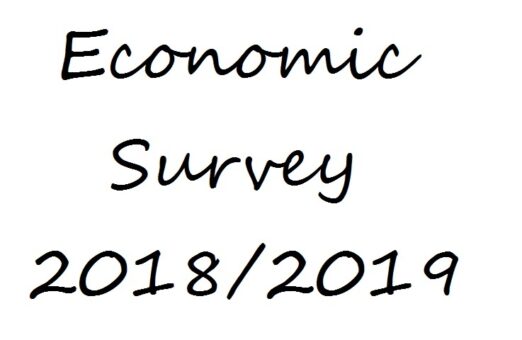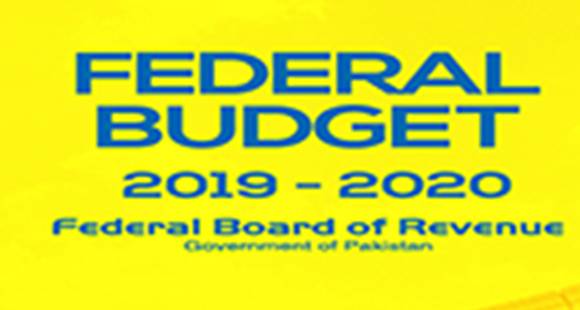ISLAMABAD: Federal Board of Revenue (FBR) has chalked out a comprehensive plan to broaden the tax base by enforcing tax returns in the case of all National Tax Number (NTN) holders.
According to Economic Survey 2018/2019 released on Monday said that the FBR would take following measures to broaden the tax base:
— Creation of a central data bank
— Enforcement of return in the case of all NTN holders
— Preparation of directory of non-filers deductees
— Data to be obtained from NADRA, Telecom Cos, Banking Cos, Development Authorities, Schools, Clubs, Hotels etc
— Data of suppliers/buyers of sales tax returns of 5,000 big companies
— Raising expenditure on revenue collecting machinery from 0.8% to 1.5% of total revenue
— Registration of persons subjected to withholding of sales tax
— Registration of retailers under the new scheme introduced under Special Procedure Rules.
— Deployment of Technology to Identify Risk Areas to Support Risk Based Audit
It said that an audit plan has been reintroduced to accompany the self-assessment scheme and to overcome weak tax compliance.
Substantial progress has been achieved for infrastructure upgradation and development with the introduction of the fully Inland Revenue Information System (Iris), which is available to all the field formations.
A paradigm shift from simple random selection to Parametric Computer Ballot selection of cases and finally risk based selection in audit has been introduced. Moreover, litigation against General Audit Policies was successfully defended before different Courts of Law.
Under the reform initiatives, Draft Audit policy for the Tax Year 2017 is under consideration and will be finalized after due deliberation/consultation with all concerned.
Moreover, Risk-based Audit Framework is being devised to ensure a more targeted and focused approach with the help of World Bank. Training modules have been prepared to import Investigative Audit Training to officers with the help of World Bank.
In order to promote tax culture, compliance and to dispel the general impression about evading taxation by individuals having prominent position in the society, FBR has under taken following initiatives for bringing a behavioral change regarding the tax culture perception in the society:
a) Publishing Tax Directory of Parliamentarians
b) Establishment of Financial Investigation Cell
c) Campaign against Tax Evaders
To simplify procedures and minimize contact between the taxpayers and the tax collectors, FBR management has made revolutionary changes in automation of tax procedures. Major achievements include:
i. Web Based One Customs (WeBOC) System of Clearance
ii. EDI – Electronic Data Interchange
iii. National Single Window (NSW)
iv. iv. Inland Revenue Information System (Iris)
Current initiatives
− Creation of Tax Policy Unit within Ministry of Finance
− Identification and scrutiny of evasion by High Net worth Individuals
− Administrative measures to increase tax collection by identifying untaxed wealth overseas and by data matching to identify non-filers
− Practical steps taken to curb Offshore Tax Evasion (UK and UAE properties, Panama and Paradise Leaks, etc.) and continuous monitoring of such cases
− Plaza Mapping at Lahore, Karachi and Islamabad
− Launch of Device Identification, Registration and Blocking System (DIRBS) to control smuggling of mobile devices
− Introduction of Currency Declaration System and Advanced Passenger Information System at major airports of the country
− Discouraging imports of luxurious goods through additional Regulatory Duties (RDs)
− Addressing under invoicing by signing MOU with China for exchange of pricing information
− Forensic audit in Sugar, Tobacco and Steel Industries to address leakages and tax evasion and in these industries
− Implementation of Tobacco Track & Trace System
− Resolving pending litigation
− Collection of pending arrears identified as collectable arrears
− Resolving 1.2 million automatically selected cases for audit U/s 214D
These reforms will start paying dividends in shape of improved compliance, higher revenue growth and improvement in tax-GDP ratio.
The tax revenues have increased significantly during last four years. The collection jumped from Rs 1,946 billion in FY2013 to Rs 3,844 billion in FY 2018, registering an overall growth of 97.5 percent.
Similarly, tax-GDP ratio of the country which was just 8.7 in FY2013 jumped to 11.1 in FY 2018.
With the help of these initiatives, FBR is moving towards a more efficient tax system; facilitating taxpayers, promoting investment and broadening the tax base in the years to come. It is envisioned that these resource mobilization efforts will result in further improvement of domestic tax revenues in coming years.




